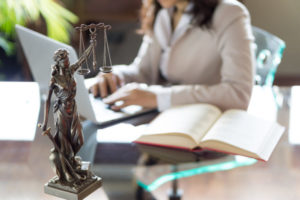
Property damage claims often accompany personal injury claims. Although a property damage claim is not the same kind of claim as a personal injury claim, many personal injury lawyers will handle property damage matters when they arise from the same accident as a personal injury.
Types of Property Damage
The two main types of property damage are real property damage and personal property damage.
Real Property Damage
Real property consists of land, buildings, and fixtures. It does not often figure into personal injury cases unless, for example, a car hits a building or something similar happens. Most insurance claims over real property damage arise from inclement weather, such as rainstorms, hail, etc.
Personal Property Damage
Personal property includes any property that is not real property, including intellectual property. In a personal injury context, personal property damage typically involves damage to a vehicle in a car, truck, or motorcycle accident.
Valuation of a Property Damage Claim
There are two main ways to value a property damage claim:
- The diminution in the value of the property as a consequence of the accident; or
- The cost to replace the property with an equivalent item.
A vehicle is “totaled” if the cost to repair it exceeds the cost to replace it.
Types of Property Damage Claims
Florida law recognizes several different types of property damage claims, as described below.
Negligence Claims
The elements of a negligence claim for property damage are identical to the elements of a negligence claim for personal injury–duty, breach, damages, and causation:
- Duty of care: The element of duty of care is almost always present because every adult owes everyone else a duty of reasonable care to prevent harm. Courts hold some defendants to an elevated duty of care due to professional training, etc.
- Breach: Did the defendant breach their duty of care to the plaintiff? A breach can happen through commission (doing something wrong) or omission (wrongfully failing to do something). This is where the action usually takes place in a negligence claim.
- Causation: The defendant’s breach of duty must have actually caused the plaintiff’s property damage. Furthermore, the property damage must have been a foreseeable consequence of the defendant’s breach of duty.
- Damages: Did the plaintiff actually suffer property damage? The real question is usually the exact amount of damages the plaintiff suffered, as established by admissible evidence.
For the sake of efficiency, negligence-based property damage claims are often bundled in with personal injury claims arising from the same set of facts.
Trespass To Chattels
Trespass to chattels is an “intentional tort” because the defendant must act intentionally in harming your property. It is an independent claim that does not often arise from a personal injury claim. A “chattel” is personal property or movable personal property. It does not include fixtures such as property that is attached to real property.
To establish trespass to chattels, you must prove that you own the property and that the defendant:
- Acted intentionally;
- Physically interfered with your right to exclusive use of the property; and
- Exercised possession (without your permission); resulting in
- Harm.
Trespass to chattels might be an appropriate claim if a vandal slashes your tires, for example.
Conversion
Conversion includes theft (because theft permanently deprives you of your property), as well as any exercise of control over your property that completely destroys it. The value of a conversion claim is the market value of your property. Pursuing a conversion claim does not prevent a prosecutor from pursuing a criminal prosecution simultaneously.
Product Liability
You can file a product liability claim if a defective, unreasonably dangerous consumer product causes harm. If the product causes property damage, you can file a property damage claim. If you own the defective product, the destruction of the product itself will justify a property damage claim.
You can win a product liability claim without proving that the defendant was negligent (i.e., strict liability applies). Furthermore, you can sue anyone in the product’s chain of distribution, from the manufacturer to the retailer.
Consider Hiring a St. Petersburg Personal Injury Lawyer for Help When Filing a Property Damage Claim
You may not need a lawyer to handle a fender-bender or minor claim. On the other extreme, you probably do need a lawyer to handle the following:
- A car accident claim that you cannot satisfy with Property Damage Liability (PDL) insurance
- A property damage claim that is too large to file as a Small Claims Action
In between these two extremes is a gray area. Nevertheless, if you are hiring a lawyer to handle your injury claim, it might make sense to hire the same lawyer to handle your property damage claim, even if it is small. At the very least, look into scheduling a free initial consultation with a St. Petersburg personal injury attorney.


